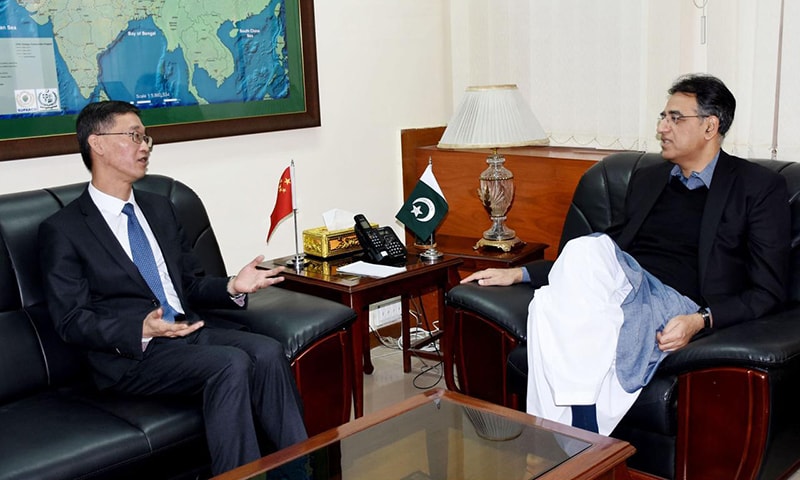Newly appointed Minister for Planning and Development Asad Umar on Friday said that the ongoing phase of the China-Pakistan Economic Corridor (CPEC) will bring about socioeconomic benefits for the welfare of the people.
He was talking to Chinese Ambassador to Pakistan Yao Jing, who called on the minister in Islamabad today, according to a statement issued by the planning ministry.
Umar during the meeting noted that the bilateral framework agreements between Pakistan and China have now entered the second phase with a focus on poverty alleviation, agriculture and industrial cooperation.
He said that CPEC offered “enormous potential” to boost the national economy and reduce poverty. The minister and the envoy also discussed future projects which would be brought under the CPEC umbrella.
The Chinese ambassador congratulated Umar on assuming the office of the federal minister for planning, development and reform and special initiatives.
The envoy “expressed satisfaction over the progress of CPEC projects, noting that the pace of CPEC projects has accelerated after the incumbent government came into power”, the press release said.
Yao expressed the hope that the bilateral partnership between the two countries will further strengthen in the future.
Umar was announced as the new planning minister on Monday in the latest shake-up in the federal cabinet, seven months after he stepped down as the finance minister.
His predecessor in the planning ministry, Makhdoom Khusro Bakhtiar, was given the portfolio of minister for national food security, which was previously held by Sahibzada Mehboob Sultan.
At the time of his appointment, an inside source had that the Chinese authorities engaged under CPEC had expressed concern over the working of key ministers relating to communications, railways and planning and development. “Chinese are not even ready to talk to these ministers because of their inability to make progress on timelines,” the source added.
A close aide to the prime minister, who did not want to be named, had said that Prime Minister Imran wanted to give the planning ministry to Umar because the latter was good at project management and it was hoped that he would expedite work on CPEC projects.
Asked why the planning portfolio had been taken from Bakhtiar, he had said that, in fact, the prime minister had some reservations over slow progress on the CPEC.
Commenting on his return to the cabinet, Umar had said that since the CPEC had entered its second phase from infrastructure to agriculture, social sector and industry, it required a robust approach in order to gain maximum benefits for the sectors and pass them on to the people.



